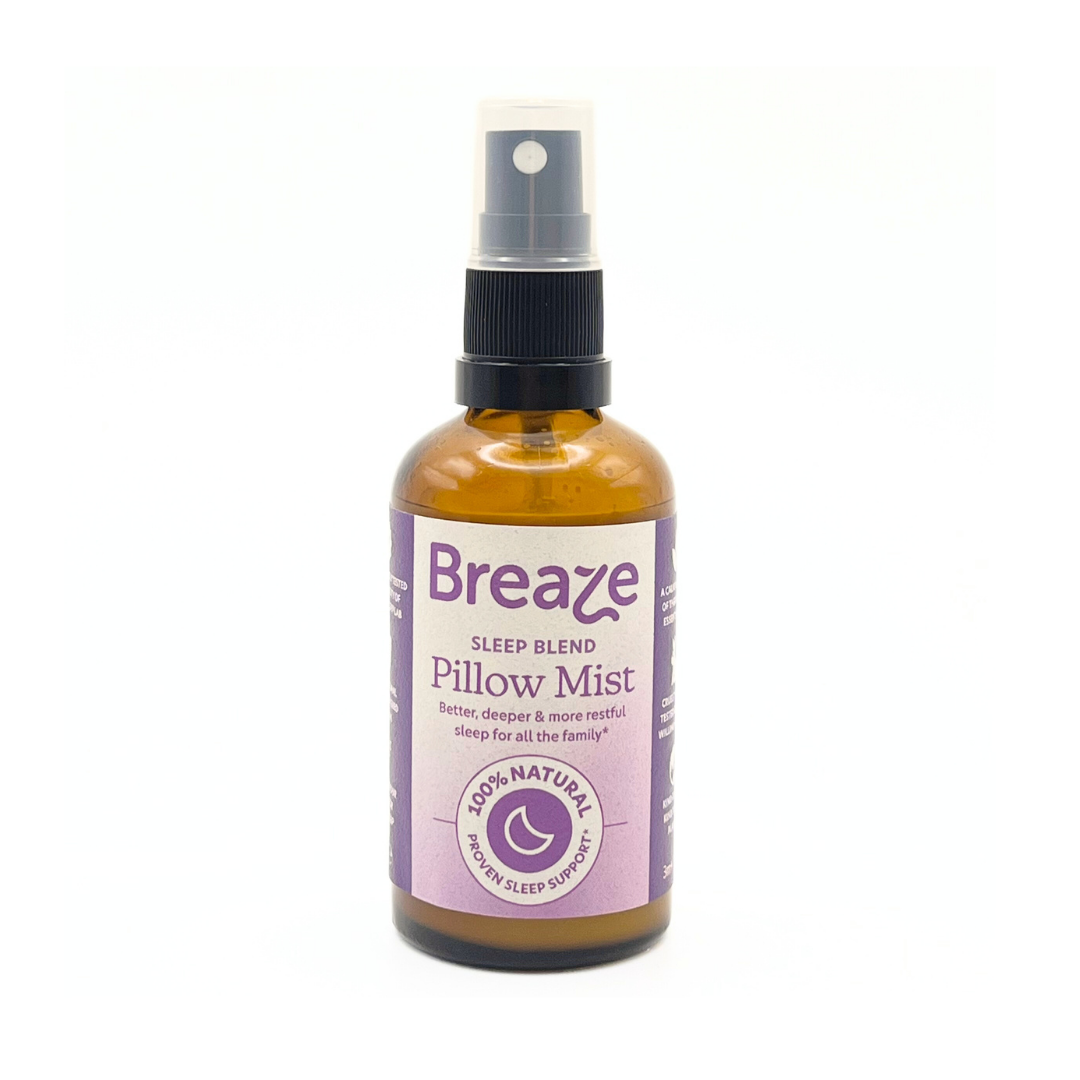The power of essential oils for hay fever - Thyme
Whenever we develop a new product, every ingredient is extensively researched and selected for its scientifically backed and longstanding use in traditional remedies.
Breaze Hay Fever support products are based on a complex functional aromatherapy formulation of 10 essential oils and botanical ingredients. Each plays an important role, and together they’re proven to help you breathe easier and sleep better when hay fever and allergies strike. ¹
In this series, we’re taking a deep dive on our functional ingredients to explain the history, heritage, and science behind each, and to show how it earned its place in our award-winning formulation.
Thyme. Thymus vulgaris.

Thyme essential oil is one of the most potent natural antioxidants, long celebrated for both its strength and versatility. Its name is derived from the Greek word 'thymus', which means 'courage'. Thyme oil is extracted from the dried leaves of the thyme herb (Thymus vulgaris) through steam distillation. The Thyme plant itself is a small, evergreen shrub with aromatic grey-green leaves and delicate purple or pink flowers that bloom in early summer. Native to Mediterranean regions like Southern Europe and North Africa, Thyme thrives in warm, dry climates.
The essential oil contains 20–54% thymol, a natural compound known for its powerful antiseptic and antibacterial properties. But thymol is just the beginning, Thyme oil also boasts antifungal, anti-inflammatory, and antispasmodic effects, making it a powerhouse in natural wellness. With a warm, herbaceous scent and subtle spicy, minty, and earthy undertones, Thyme oil is often used in aromatherapy, natural cleaning products, and even toothpaste and mouthwashes.

Thyme’s reputation as a healing herb dates back thousands of years. Ancient Egyptian texts from around 1550 BC, such as the Ebers Papyrus, recorded its medicinal uses, especially in embalming, due to its antibacterial properties and pleasant aroma.
In Greek and Roman times, Thyme symbolised bravery and love. Soldiers bathed in Thyme-infused water before battle, believing it would protect and embolden them. Even the goddess Aphrodite was associated with this aromatic herb. In the Middle Ages, Thyme was used in folklore and magic, with herbalists using it to ward off evil spirits and bad dreams. It was placed beneath pillows to aid sleep and ward off nightmares. During the Middle Ages, Thyme was used in folk medicine and magical rituals. Herbalists placed it under pillows to promote sleep and ward off nightmares, while it was also used as a protective herb against the plague. Women would gift warriors with Thyme-emblazoned scarves, believing it would inspire courage. Thyme oil even played a role in World War I, used to disinfect hospitals and surgical areas thanks to its natural antimicrobial properties. ²
Today, Thyme essential oil is recognised for its wide-ranging health benefits, offering support for both physical and emotional well-being. One of its key roles is in hormone support, particularly for women experiencing menstrual or menopausal symptoms. Thyme oil has been shown to help balance hormone levels and support progesterone production to inhibits the growth of human breast cancer cells. ³
Thyme oil is also widely used in dental care. You’ll often find it in natural toothpastes and mouthwashes, where it helps combat issues like gingivitis, tooth decay, and plaque thanks to its potent antibacterial properties. ⁴
Its antimicrobial power doesn't stop at oral health. Thyme essential oil is a natural antibacterial and antifungal agent, making it an effective addition to hand sanitisers, antifungal creams, and even acne treatments. A 2010 study found that thyme oil was effective against P. acnes, the bacteria believed to contribute to acne outbreaks. ⁵
Thyme essential oil may also support emotional balance. Compounds such as limonene, carvacrol, and linalool have been shown to increase the activity of GABA, a calming neurotransmitter in the brain. This makes Thyme oil a natural aid for reducing stress, anxiety, agitation, and nervousness, promoting a sense of relaxation and well-being. ⁶

Thyme is a valuable addition to our formulation for its natural anti-inflammatory and antispasmodic properties. Because of this, it is said that Thyme oil can benefit the body by calming contracting muscles, offering relief and providing comfort from breathing difficulties. A 2016 study supported its effectiveness in treating respiratory tract infections. ⁷
Thyme oil is more than just a kitchen staple. Whether you’re adding it to a pasta sauce, blending it into a diffuser mix, or using it in natural remedies, Thyme brings centuries of wisdom and healing into everyday life. Its remarkable ability to support the body, from skin and respiratory health to emotional balance and hormonal harmony, makes Thyme essential oil a truly timeless remedy.
¹ Breaze user trial 2020 82% of users said that Breaze helped with hay fever symptoms
³ https://pubmed.ncbi.nlm.nih.gov/9492350/
⁴ https://onlinelibrary.wiley.com/doi/10.1111/idh.12672?af=R
⁵ https://pmc.ncbi.nlm.nih.gov/articles/PMC6263286/


